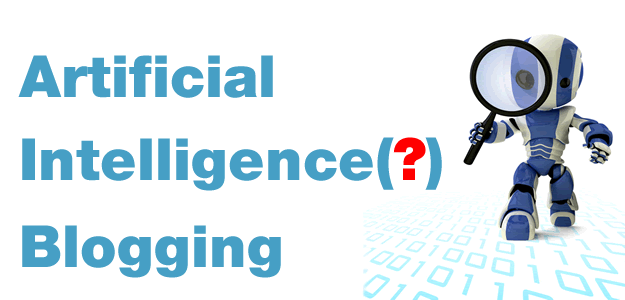Back in the 1960s there was a prime time animated TV series known as “The Jetsons.” As a child I remember being fascinated with the families made; a robot seemingly intelligent enough to take the place of a human maid in every aspect. Alongside “The Jetsons” there was a whole laundry list of television programs and films that pushed my imagination into the realm of robots. To this day I wonder if these mechanical creatures with artificial intelligence will ever replace human beings.
I think not.
I think not despite the fact that a company known as Natural Science has created a computerized algorithm capable of producing written content that passes for news stories written by accomplished journalists. As a writer, the idea behind Natural Science is scary insomuch as it could put me on the unemployment line. As a human being who loves to read, I’m not necessarily convinced Natural Science will put folks like me out of work.
Profit rose in the fourth quarter of the last fiscal year, breaking a streak of two straight quarters of falling profit. In the most recent quarter, profit rose 9.7%. For two quarters prior, the figure dropped 11.5% in the third quarter of the last fiscal year and 15% in the second quarter of the last fiscal year.
I must confess that that’s pretty impressive stuff from a computer algorithm with no brain. Yet there are some flaws which allowed me to quickly spot the fact that it wasn’t written by a human being. Those flaws are enough to turn me off as a reader. Others may not be bothered by it, but I could not spend my day reading this type of content.
How Natural Science Works
Before getting into my explanation of the flaws of this technology, let me first explain how it works. Natural Science relies on users to input data according to very specific parameters. For example, the piece from Forbes.com required someone to input the profit numbers from the company the article spoke about. Whether those numbers came directly from a user who entered them using a smartphone, or from a Wall Street computer keeping track of the data, the numbers themselves had to originate from a human being.
With the appropriate information entered the algorithm can then construct a story based on the coding parameters provided by the algorithm’s developers. That coding can be tweaked to account for Wall Street earnings reports, sports scores, or just about anything else. Making it work doesn’t even require skilled data input personnel. You just need people who understand the parameters and can enter data accordingly.
Flaws in the System
The first major flaw in the Natural Science algorithm is its fact-based process. The algorithm can only analyze the facts given and construct a story around them. As such, I noticed right off the bat that the content the algorithm produced was not free-flowing and natural. For hard news that probably isn’t important to most readers. But for creative writing, it’s a flaw that has to be overcome before Natural Science could ever be accepted as a serious creative writing tool.
Along those same lines is the second flaw: a lack of any passion in the writing. As an example, Gadget Lab’s Steven Levy opened his review of Natural Science by mentioning the company’s office as being just a short distance away from the Tribune Tower. He illustrated the distance by talking about a baseball toss. That reference means something not only to native Chicagoans but, more specifically, to fans of both Chicago baseball teams.
Impassioned writing that takes advantage of artistic nuances requires real intelligence, not an artificial substitute. The best Natural Science can hope for is to re-create something similar to Data, the lovable android from “Star Trek: the Next Generation.” It may be able to analyze facts, throw in a couple of catch phrases, and produce news content for mind-numbed consumers who don’t have time to read anything in depth. But I don’t think it will ever be able to replace the art of accomplished prose.
At least I hope it never does.


You must be logged in to post a comment.